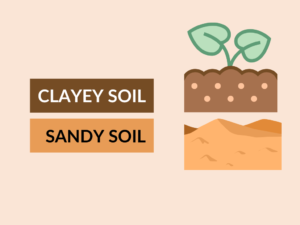Compaction vs Consolidation
When it comes to soil mechanics and construction, compaction and consolidation are two important processes. While they might sound similar, there are distinct differences between the two. In this article, we will explore what compaction and consolidation are, their examples, uses, and highlight the key differences that set them apart.
What is Compaction?
Compaction refers to the process of mechanically increasing the density of soil by reducing air voids through the application of external force. It involves compressing the soil particles together, minimizing the volume of voids, and thus improving its load-bearing capacity and stability.
Examples of Compaction:
- Rolling a lawn using a lawn roller
- Using a vibratory plate compactor to compact loose soil before laying a pavement
- Pneumatic tampers used in landscaping projects
Uses of Compaction:
- Preparing a stable base for roads, railroads, and airport runways
- Compacting soil in building foundations to prevent settlement
- Improving the load-bearing capacity of embankments and retaining walls
What is Consolidation?
Consolidation, on the other hand, is a long-term process in which the excess water is gradually squeezed out from saturated or semi-saturated cohesive soils under the influence of load. It occurs over time due to the compression of soil particles, resulting in settlement of the soil layer.
Examples of Consolidation:
- Settlement of a building over a period of time
- Vertical compression and settlement of soft clay deposits
- Settlement of reclaimed land that was previously underwater
Uses of Consolidation:
- Assessing the settlement of foundations to ensure the stability of structures
- Designing and constructing buildings and infrastructure on compressible soil
- Monitoring and managing settlement in land reclamation projects
Differences between Compaction and Consolidation:
| Difference Area | Compaction | Consolidation |
|---|---|---|
| Density Control | Increases soil density | Reduces water content and increases soil strength |
| Time Duration | Short-term process | Long-term process |
| Influence of Water | Water content does not significantly affect compaction | Water content affects consolidation process |
| Settlement | Compaction reduces settlement | Consolidation leads to settlement |
| Load Application | External force is applied | Natural loads (like building weight) are applied |
| Time Dependence | Compaction achieves immediate results | Consolidation occurs gradually over time |
| Water State | Compaction can occur in both saturated and unsaturated soils | Consolidation primarily occurs in saturated or semi-saturated soils |
| Improvement in Strength | Compaction improves soil strength | Consolidation does not significantly affect soil strength |
| Type of Soil | Compaction can be performed on various types of soils | Consolidation primarily occurs in cohesive soils |
| Equipment Required | Specific compaction equipment is used | No specific equipment required |
Conclusion:
In summary, compaction is a short-term process that aims to increase soil density and improve load-bearing capacity, while consolidation is a long-term process involving the gradual expulsion of excess water and resulting settlement. Compaction is achieved through external force application, whereas consolidation occurs naturally under loads. Understanding the differences between these two processes is crucial for successful soil engineering and construction projects.
People Also Ask:
- What is the main purpose of compaction?
- How does consolidation affect the stability of structures?
- Can consolidation occur in unsaturated soils?
- What are the factors affecting compaction?
- How can engineers prevent excessive settlement in foundations?
The main purpose of compaction is to increase the soil density, reduce air voids, and enhance its load-bearing capacity for various construction applications.
Consolidation can lead to settlement of the soil layer over time, which can affect the stability and structural integrity of buildings and infrastructure.
No, consolidation primarily occurs in saturated or semi-saturated cohesive soils where excess water can be expelled over time due to applied loads.
The factors affecting compaction include soil type, moisture content, compaction equipment, compaction energy, and the number of passes.
Engineers can prevent excessive settlement in foundations by performing proper site investigations, designing suitable foundations, and considering soil consolidation characteristics during construction.


